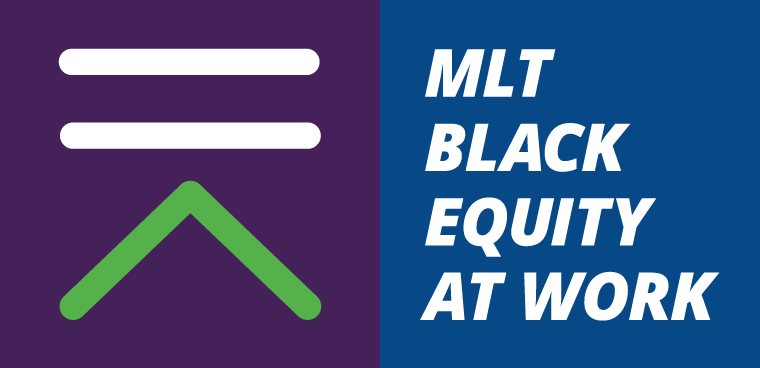Solutions
Case Studies
Case studies highlight local business and initiatives who are making strides in building a better tomorrow
Across the Capital Region, unemployment rates for the Black
population
exceed the
white
population by 138-142%; Hispanic unemployment rates exceed the white
population by
34-10%11
White residents are nearly 1.5 times more likely to be employed in a
high-quality
job than
Black residents11
Among all US-Based companies with 100 or more employees, Black
employees
hold just
3% of
executive or senior-level roles64
Across the Capital Region, there are significant racial and economic disparities in career opportunities, with Black and Hispanic workers underrepresented in quality jobs.I This limits workers’ ability to provide for their families, stifles their economic mobility, and may lead to talent retention issues, hindering the region’s economic growth and restricting the diversity of talent within regional employers.

Disparities in job quality lead to divergent income levels: the average annual median income gap between white and Black households in the Capital Region is $43,000, and the gap between white and Latinx households is $34,000.3 Differences in income compound economic disparities across the board, as individuals with lower incomes are less able to build wealth for themselves and their loved ones and afford necessities such as housing, healthcare, and transportation.
COVID-19 has exacerbated employment inequities as it has accelerated the adoption of remote and hybrid work for high-quality jobs.J The Capital Region has the second-largest pool of remote-capable workers; however, remote and hybrid work opportunities are distributed inequitably across demographic and socioeconomic backgrounds (e.g., ethnicity, gender, educational achievement, income level).60 Due to the strong correlation between remote work and educational achievement, in addition to the overrepresentation of Black and Hispanic workers in frontline jobs, only 41% of Black workers and 28% of Latinx workers are in remote-capable jobs, compared with 56% of white workers.60
Employers can help close regional racial and economic disparities in career opportunities by embracing inclusive hiring practices, promoting equitable retention and advancement, and investing in employee well-being. These commitments benefit workers and their families through increased income and economic stability, catalyze economic growth across the region, and provide tangible benefits to business, such as access to a wider and more diverse talent pool, improved employee retention and workplace culture, and enhanced profitability.

The following section details how employers can support inclusive growth within workforce development and the potential impact of making such investments.
13% of Black and Hispanic residents live in poverty, compared to only 5% of white
residents3
 ONETEN - https://oneten.org/
ONETEN - https://oneten.org/
 Management Leadership for Tomorrow’s Black Equity at Work Certification - https://www.mltblackequityatwork.org/
Management Leadership for Tomorrow’s Black Equity at Work Certification - https://www.mltblackequityatwork.org/
Case Study:ONETEN
OneTen is a coalition of leading executives that have come together to close the opportunity gap for Black talent in America. OneTen’s mission is to hire, promote, and advance one million Black individuals who do not have a four-year degree into family-sustaining careers over the next 10 years. The organization takes a skills-first approach, focusing on competencies to ignite potential for generations to come.
OneTen enhances existing and successful efforts by creating a network of talent and nonprofit providers and facilitating partnerships with employers who are committed to hiring, upskilling, and advancing Black talent. OneTen supports employers by:
- Hiring Black Talent
- Increase hiring and promotions of Black talent who have the skills and competencies to succeed on the job
- Improving Employee Outcomes
- Engage and retain Black talent within organizations, supporting their professional development and advancement
- Activating Best Practices
- Participate in a Community of Practice,M sharing learnings and approaches to DEI challenges alongside fellow leaders
- Supporting a Comprehensive Ecosystem
Financial contributions fund endorsed education and training programs that prepare talent for in-demand jobs
Several Partnership organizations have committed to the OneTen mission, including Bank of America, Deloitte, JPMorgan Chase & Co., Northrop Grumman, and Wells Fargo.
Case Study:Management Leadership for Tomorrow’s Black Equity at Work Certification
Management Leadership for Tomorrow (MLT) launched the MLT Black Equity at Work Certificationbased on its 15+ years of experience designing and implementing DEI strategies for more than 120 leading companies.
Developed in partnership with the Boston Consulting Group, MLT’s Black Equity at Work Certification establishes a clear and comprehensive Black equity standard for employers. The Certification provides the roadmap and the recognition necessary to enable and encourage employers across America to pursue
Black equity with the same rigor and results orientation as their pursuit of earnings and other key priorities.
The Certification:
- Establishes an achievable standard for what “good” looks like and helps employers benchmark
- Offers critical “how-to” support that meets employers where they are
- Gives senior executives confidence their organization can make measurable progress on the journey toward Black equity
- Strikes the balance between rigor and achievability, and enables employers to receive recognition for committing to action, with accountability
MLT Black Equity at Work-certified employers can expect boosts in employee retention and recruitment, improved ESG and credit rations, and potentially increased access to capital from diversity-focused fund managers.
Several Partnership organizations are committed employers in this certification program, including Amazon, Deloitte, and EY.













 Website Development By Top Shelf Design
Website Development By Top Shelf Design